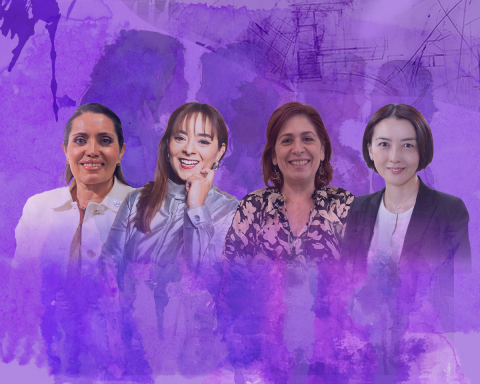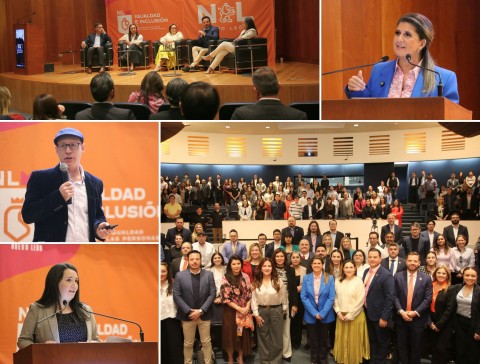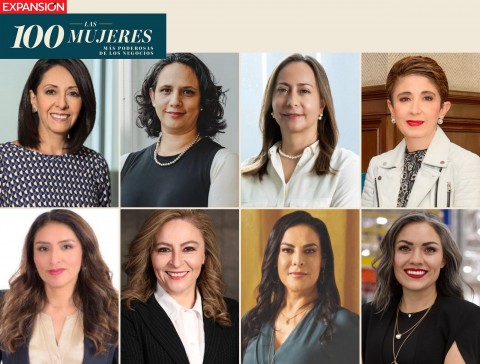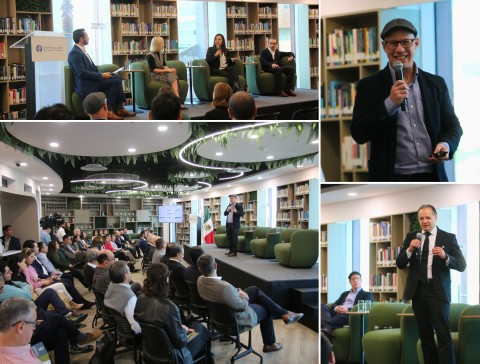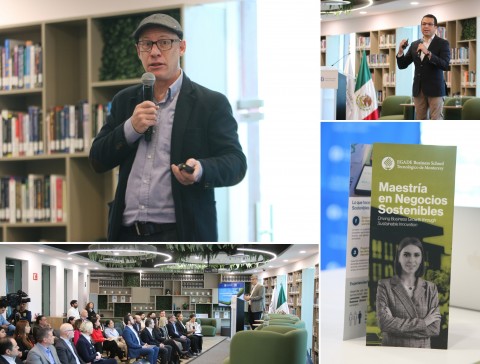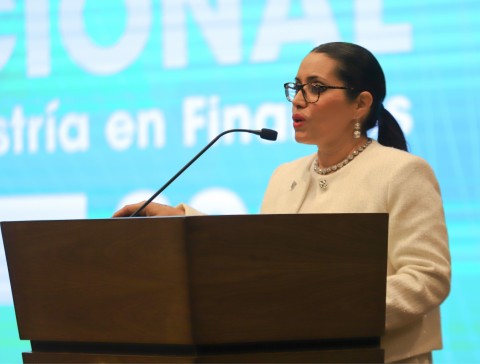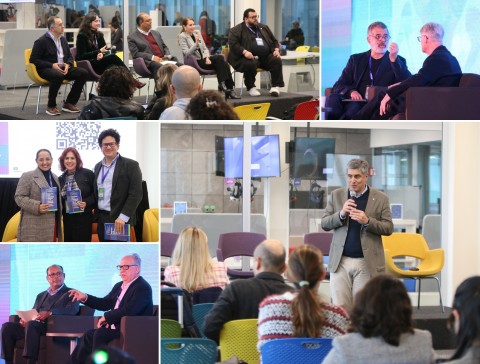Immersion Weekend 2025: Artificial Intelligence and Data for Business Transformation
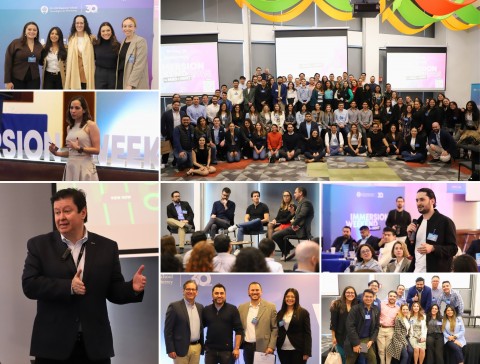
EGADE Business School brought together students from the Master in Business Analytics and the Master in Marketing for an immersive experience with experts from Microsoft, Wharton, BBVA, Dell, Starcom, Novartis, and more.
By JOSÉ ÁNGEL DE LA PAZ | EGADE BUSINESS SCHOOL
Generative artificial intelligence and data analytics are redefining the future of business. Within this context, EGADE Business School at Tecnológico de Monterrey hosted the 2025 edition of Immersion Weekend, an exclusive event that, for the first time, brought together students from the Master in Business Analytics and the Master in Marketing to explore, alongside global experts, the opportunities and challenges that AI presents for business strategy.
The event occurred on February 14 and 15, with sessions held at the Microsoft Mexico corporate offices and the EGADE Business School campus in Santa Fe.
In a welcome message, Horacio Arredondo, Dean of EGADE Business School, highlighted the importance of this space for learning and networking among emerging leaders.
"This is your space to learn, connect, and discover new perspectives in a world driven by artificial intelligence. We are at an unprecedented moment of transformation, where generative AI is redefining data analytics and marketing and reshaping how organizations create value. Beyond technical learnings, this is a space for networking, exchanging ideas, and forming strategic alliances that will enable you to transform your organizations," said Arredondo.
The first day of activities featured Rafael Sánchez, President and General Manager of Microsoft Mexico, who opened the event with a keynote address.
This was followed by Gideon Nave, Professor at The Wharton School, who presented the conference "Artificial Innovation: Idea Generation Beyond Human Limits," exploring how artificial intelligence surpasses traditional barriers in business creativity.
Jacobo Fernández, CEO of Starcom, delivered the conference "InnovAI: Transforming Advertising through Tech," analyzing the impact of AI on digital advertising and communication strategies.
Later, Gastón Fossati, Senior Vice President of Data for Hispanic America at Monks, presented the conference "AI & Data Strategy in Business," highlighting how artificial intelligence redefines data management and analysis in strategic decision-making.
The conference "Vision and AI: How to Optimize the Use of Prompts for Extraordinary Results" was also held, led by Shigueru Kato Maeda, Senior Technical Architect - Data & AI at Microsoft, discussing best practices for improving interaction with generative AI models.
🚀 ¡Damos inicio a #ImmersionWeekend 2025 en @MSFTMexico! El Encuentro Nacional de la Maestría en #BusinessAnalytics y la Maestría en #Mercadotecnia, en donde la #IA, el #marketing y la #AnalíticadeDatos convergen en un espacio de #networking y actualización. pic.twitter.com/eFmyzzqMPX
— EGADE Business School (@egade) February 14, 2025
The first day concluded with the panel "Mistakes and Myths in AI: What Future Leaders Need to Know to Avoid Them," featuring Alejandro Correa, Senior Global Director of Artificial Intelligence at AB InBev and Professor at EGADE Business School; Gastón Fossati, from Monks; Vania Uribe, CMO Lead at Microsoft; Andrés Ramírez, Commercial Director at Publicis Groupe; and León Palafox, Director of Innovation at Novartis.
Additionally, key conferences on the impact of AI in different sectors were presented, such as "Sales Targeting: Bringing Insights with GenAI," led by Zuleica Guiza, Mexico Marketing Leader at Dell Technologies, and "Impact of Generative AI on Business," by Fernando Fernández, Data Portfolio Management Principal Manager at BBVA.
🚀 Lucía López, directora de #Marketing e #Innovación de @TimHortonsMX, nos brindó insights sobre cómo convertir datos en resultados. Así concluyó #ImmersionWeekend 2025, el encuentro de las maestrías en #BusinessAnalytics y #Mercadotecnia. ¡Nos vemos en la próxima edición! pic.twitter.com/OqcczXVoTP
— EGADE Business School (@egade) February 15, 2025
On the second day, activities moved to EGADE Business School in Santa Fe, with new conferences and workshops on the application of AI in digital marketing strategies, customer relationship management (CRM), and sales optimization.
Juan Francisco Monroy, CEO of Publicis Media Exchange (PMX) Mexico, Miami, and Head of Partnerships LATAM, along with Andrés Ramírez, Commercial Director at Publicis Groupe, shared their insights on global marketing trends and the impact of AI on advertising.
Alejandro Correa, Professor at EGADE Business School and Senior Global Director of Artificial Intelligence at AB InBev, presented the conference "From the Classroom to the Real World: Innovative AI Applications in Business," while Matías Bossie, Regional Manager North Latam at Minders, and Joaquín Bossie, COO & Co-founder of Minders, conducted the workshop "CRM with AI," exploring AI integration in customer relationship management.
Later, Juan Carlos Morales Cardoso, CEO of Golden Companies, led the workshop "Digital Communication: Major Challenges and Opportunities for SMEs and Entrepreneurs," providing strategies for optimizing businesses' digital presence.
Lucía López Sarre, Director of Marketing and Innovation at Tim Hortons Mexico, delivered a conference on innovations in the retail industry and connecting with consumers in a digitized environment.
Immersion Weekend 2025 provided cutting-edge knowledge and the opportunity to build key connections for the future of business.
